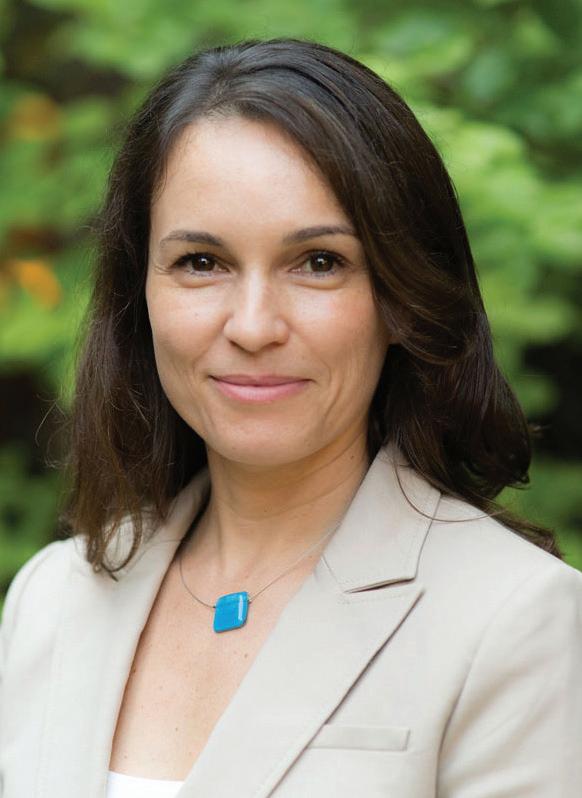welcome For this Centennial issue of AHEAD, we decided to be true to our title and look, as stated on our cover, ahead. First, though, a (quick) look back. Over the years, the research accomplishments of our faculty have been many and significant. Research first became a priority at the School of Social Work in the early 1950s, under Dean Fedele F. Fauri. Up to that time, U-M’s Institute of Social Work, as it was then called, dedicated itself primarily to the training of frontline workers, including administrators, in social welfare. This was and remains critically important, a raison d’être of our School or any school of social work. When the Institute gained the status of a school, Fauri and many others saw us also as creating more scientific knowledge in social work that could inform other disciplines as to how to think about (conceptual contributions) and develop solutions (individual and structural interventions) to social problems affecting marginalized populations. In the 1951–52 school year, Research in Social Work was offered as one of four possible specializations for second-year students. The 1950s saw the hiring of many faculty with PhDs in social work or social science, culminating in the creation of the School’s own Joint Doctoral Program in Social Work and Social Science in 1957. Over the years, many graduates of the Joint Program were hired as faculty at the School, and their work is highlighted in the coming pages. In this issue of AHEAD we look at what our research faculty are doing right now, today. Within the last decade, our tenure-track faculty has become even more productive –– more grants and more publications –– and so this issue of AHEAD is also a look at our research future. In the pages ahead, we highlight key contributions already made with an eye toward the scholarly work that lies ahead. We will still grapple with social issues of the past while addressing those of the 2020s: climate change, water shortage, the rise of racism, xenophobia and fascim across the globe. Our faculty have been conducting research that is more explicitly about addressing racism and social injustice, and also research that integrates the arts in behavioral 4 | AHEAD
(micro-level) intervention and in advocacy (macro-level). A review of what our research faculty are studying today and their key contributions to their specific areas of research begins on page 10. You will find the faculty an impressive group, and I believe we can be proud of their achievements as they and their collaborators take us into our second century. We are also proud about how faculty have responded to the COVID-19 pandemic and have contributed scientific knowledge in this new area of inquiry. An overview of our research faculty’s response to COVID-19 can be found on page 29. The pandemic and its consequences have of course become yet another critical area of research as we go forward. It is with a heavy heart that, with this issue, I say goodbye to Dean Lynn Videka, who is retiring at the end of 2021. Lynn has made an enormous difference to our School and to the University. Her steady hand, clear vision and mission and commitment to social justice have helped the Research Office stay on course in supporting research that advances social justice. On a personal note, I thank Lynn for believing in my capacity to manage and grow the Research Office and for appointing me to several committees both local and national, where I can integrate my anti-racism mission and my social justice and genderaffirming values. I look forward to working with my colleague Professor Joseph Himle as he steps into Lynn’s shoes as our interim dean. Joe’s knowledge of our school will keep us moving in the right direction as we await our next dean. Over the past four years, the activity of our research office has increased dramatically to reflect researchers’ new interests and activities. Our staff has grown in number and expertise, and this is due to Dean Videka’s forward thinking and support to research. You will find an introduction to the people in our office on the next page, followed by a review of our operations “by the numbers.” On page 8, we pay tribute to one of our longest-serving colleagues, Candace Terhume-Flannery, who next spring will retire after more than 20 years of service to our School and to our research operations in particular. I hope you enjoy this issue of AHEAD. This has been a challenging time, and yet the challenges have been fascinating –– and, as we have marked our centennial, this has been a celebratory time as well. Rogério M. Pinto, PhD Associate Dean for Research and Innovation University of Michigan School of Social Work






